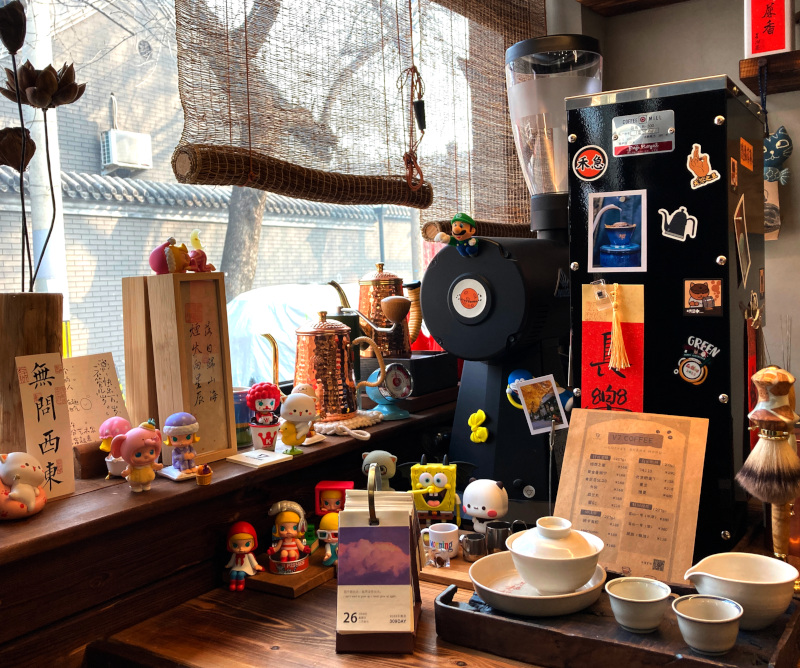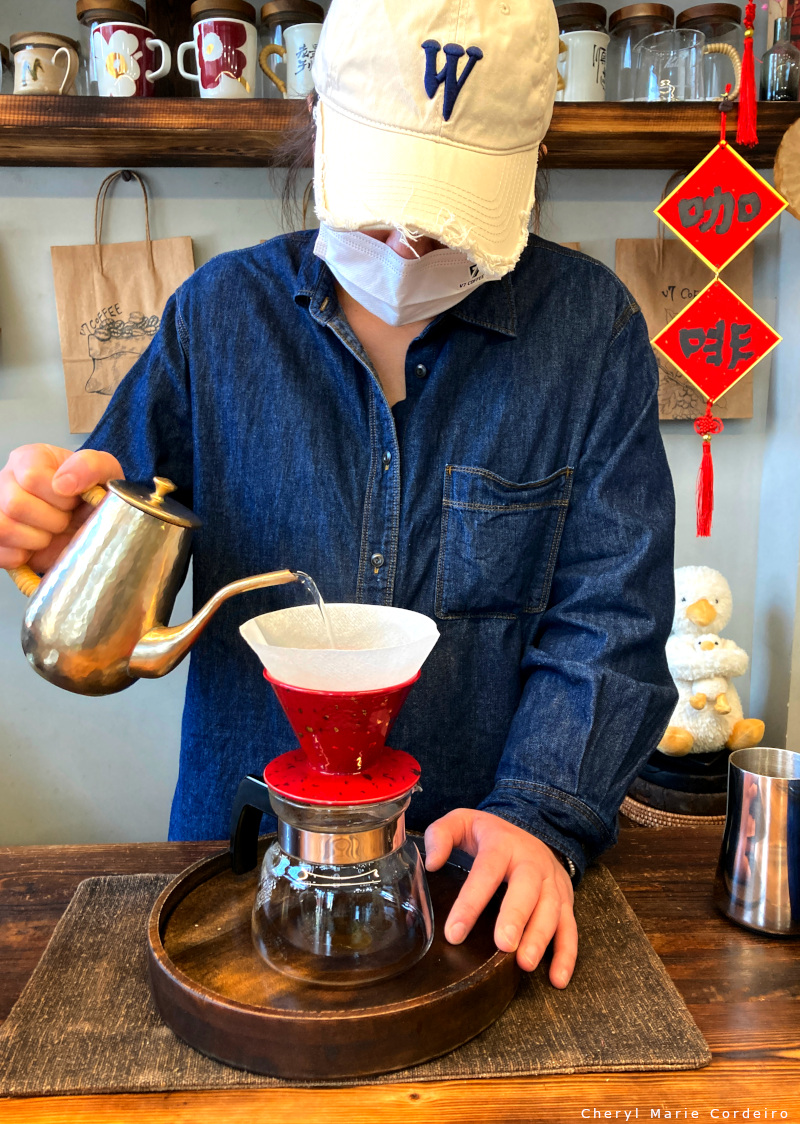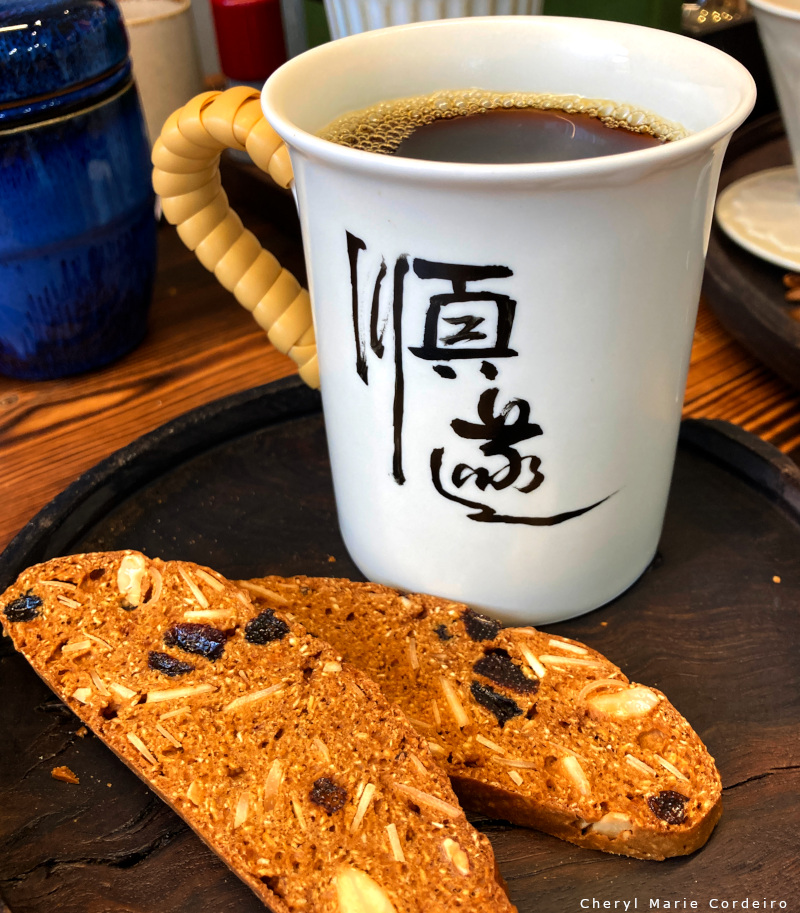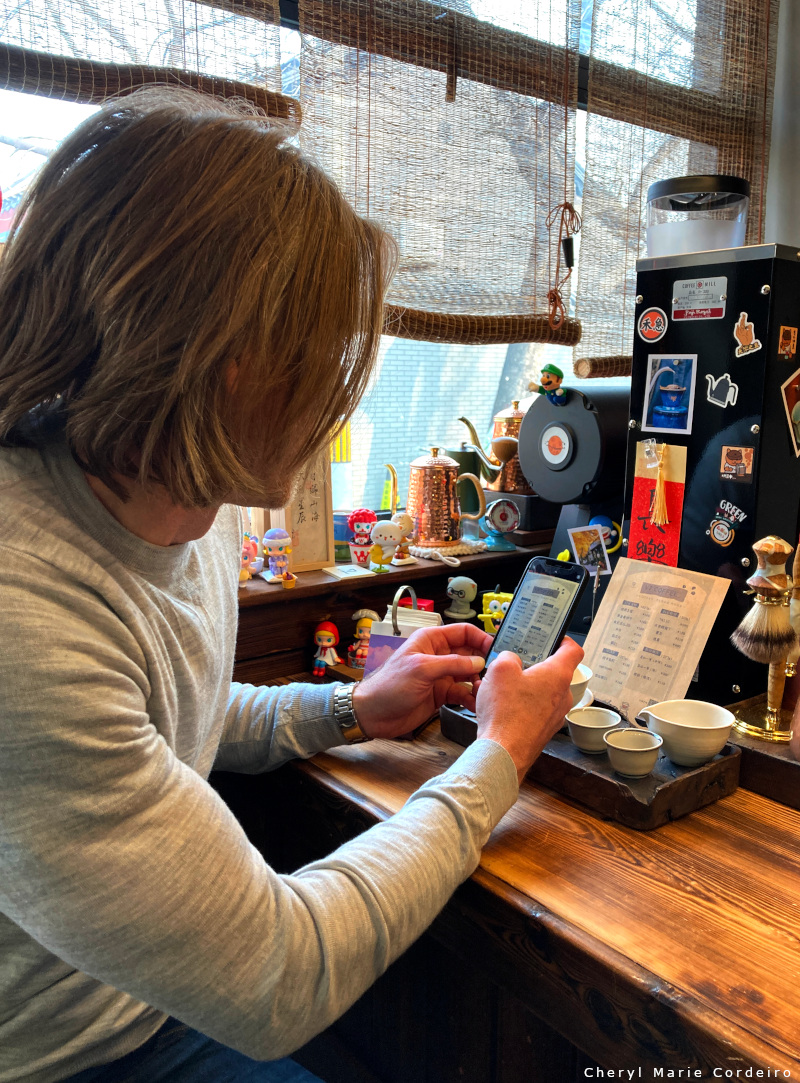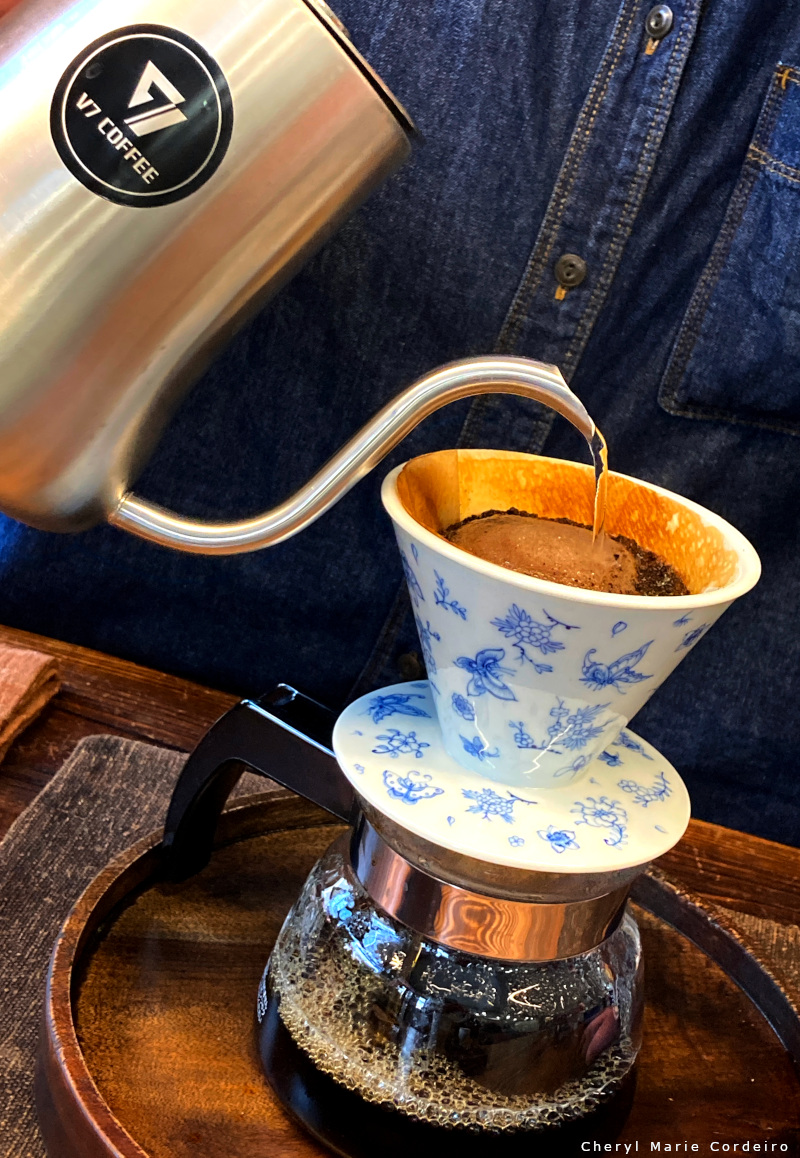V7 Coffee, serving fantastic specialty coffee in Haidian district, Beijing, China.
Text & Photo © CM Cordeiro, JE Nilsson & E Sindhöj 2023
Having had the privilege of visiting Beijing on numerous occasions, I remain drawn to the Forbidden City, also known as the Palace Museum, despite the staggering modernization that has transformed this great city. The Palace’s imposing gates and striking red pavilions situated at the heart of Beijing never fail to impress me. Equally fascinating to me is the network of narrow streets and low houses surrounding the Forbidden City, known as “Hutongs.” Once the living quarters of those who worked in the palace, some Hutongs have been converted into commercial areas, while others remain residential neighborhoods.
During the Ming and Qing dynasties these quarters served as a mental relief to the even the highest ranked individuals inside the Forbidden City. Some eunuchs played a role in facilitating visits by imperial court members even to pleasure houses outside of the Forbidden City. These illicit visits were seen as a way for court members to escape the rigid protocols and constraints of palace life.
Even the Emperor Guangxu (1875-1908) sought help for his medical problems from those among the Hutongs that practiced traditional Chinese medicine towards the end of the Qing dynasty. It is said that his great-aunt, the Empress Dowager Cixi, repeatedly tried to poison him due to irrevocable differences in their ideas about the future of China. In 1908 they eventually both died. The Guangxu emperor one day before Cixi, poisoned by arsenic.
With this in mind I set out to visit this maze of winding small roads and gray buildings in the area around the Forbidden City in late February 2023.
Today, Beijing is a silent city due to its massive electrification of its buses and cars. This helps to transport one’s mind to a time where there were no cars at all. The weather was clear, smog-free, and perfect for a leisurely stroll. The clear blue skies invited people to engage in quiet activities in the narrow alleyways and back lanes among the traditional courtyard-style homes in the Haidian district of Beijing. Many of these homes date back hundreds of years and have been carefully preserved. Walking through the neighborhood on the weekend was a pleasant experience. The narrow streets encouraged both locals and visitors to slow down while navigating through the area, creating a sense of familiarity. It was the perfect setting for a leisurely stroll through the city of Beijing, where the historical architecture of the houses provided an interesting and stark contrast to the tall glass skyscrapers of the city’s Central Business District.
I chanced upon V7 Coffee, a café that specialized in serving premium coffee. With a surreal “bossa nova” soundtrack playing softly in the background, I thought it was a cultural gem of a place that simply had to be explored further. The café’s atmosphere was decidedly cosmopolitan, with murmurs of conversation in various languages from English to French, Mandarin to Italian.
The owner shared that specialty coffee had emerged as a recent trend in Beijing, thanks in part to the city’s growing middle class seeking new experiences. It reminded me that China, a country with a long history of tea-drinking dating back to the Han Dynasty (206 BC-220 AD), was once again becoming an important hub for the world’s elite, enjoying foreign imported food and drink a few hundred meters from where this vast empire was run from the 14th century onwards. This was similar to what had occurred in Tang Dynasty China in the 8th century, which brought affluence and progress to the world at the eastern end of the Silk Road.
Stepping out of V7 Coffee, you’ll notice several other cafés along the same street that offer high-quality coffee, with beans sourced from some of the world’s finest independent farms. In Beijing, coffee lovers would be spoiled for choice, from cozy cafés in restored courtyard homes to rooftop cafés with breathtaking city views.
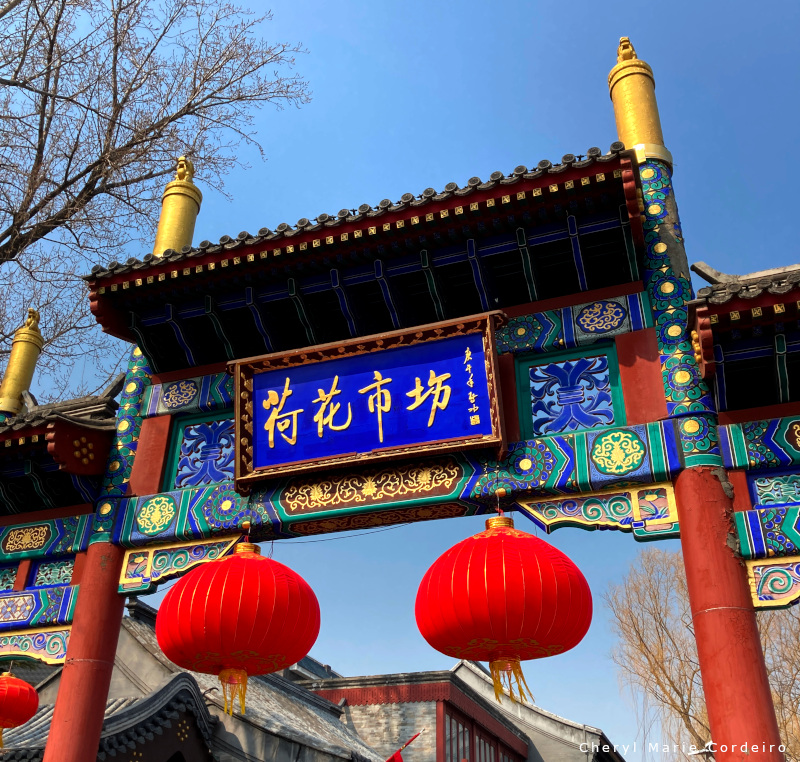
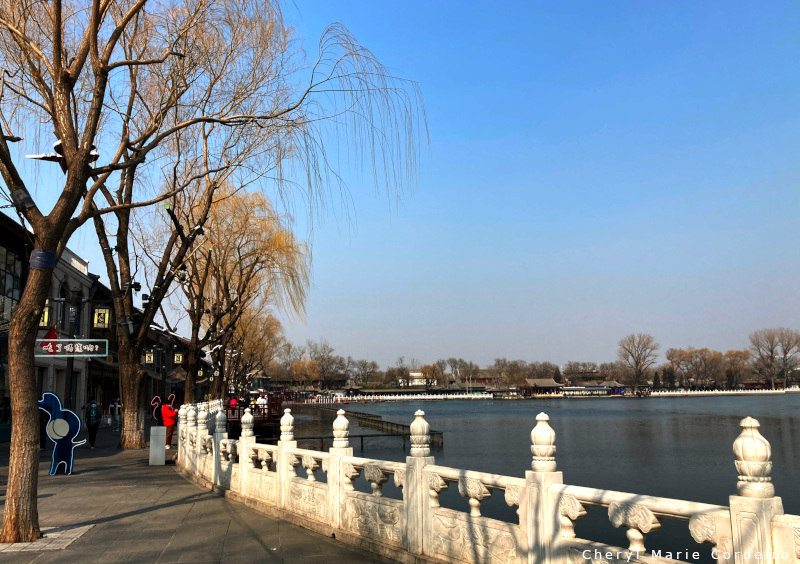
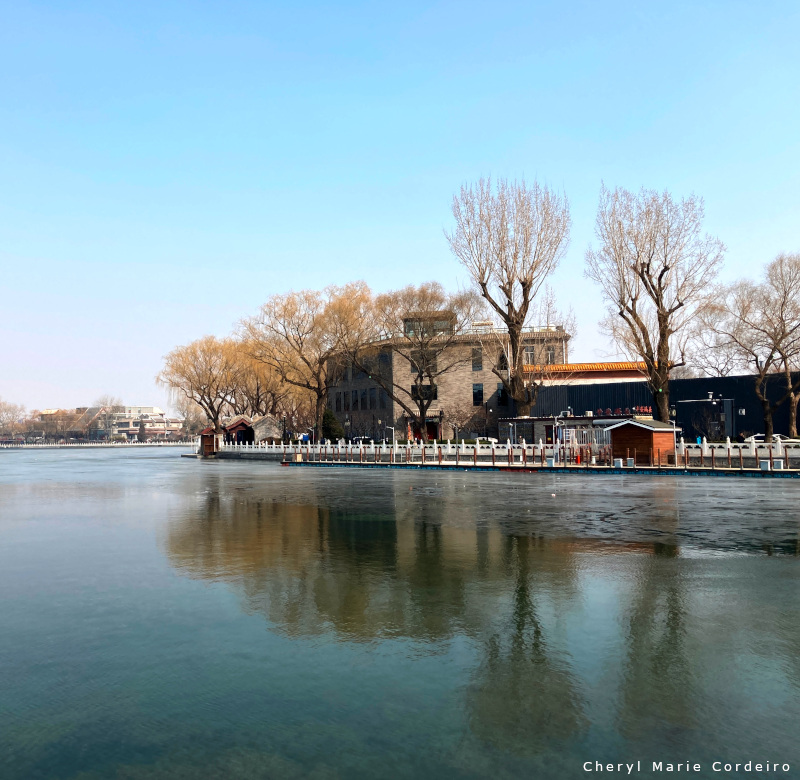
A weekend morning scene by the lake, Haidian district, Beijing, China.
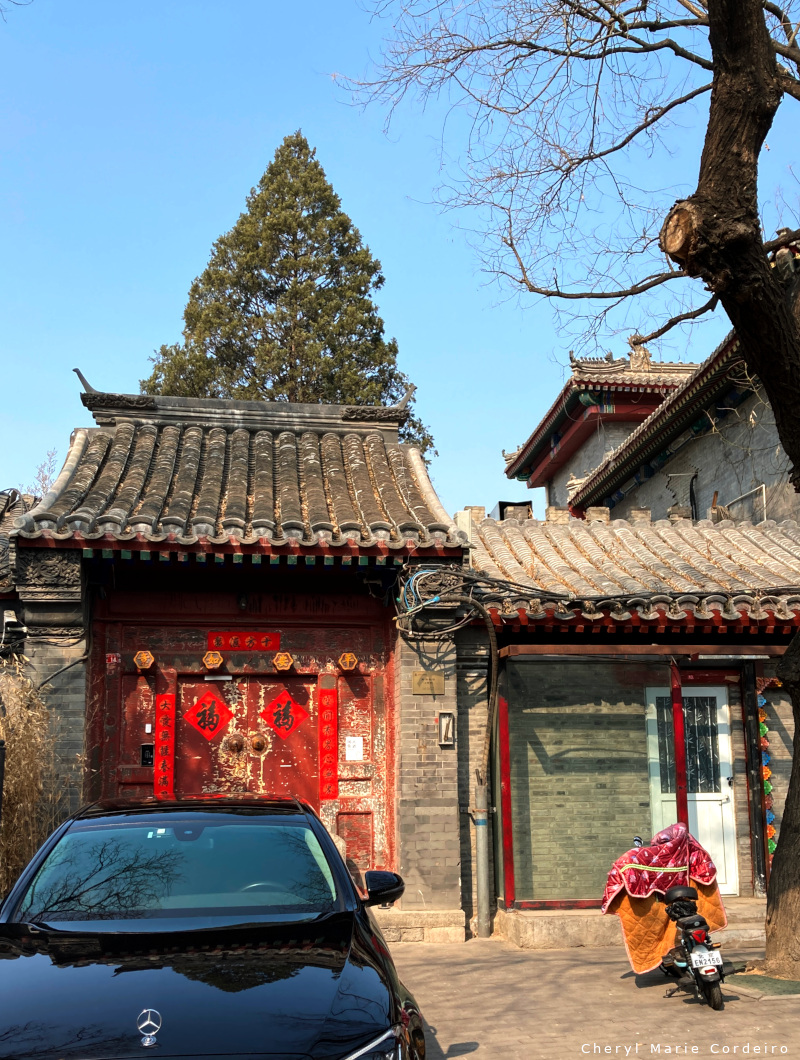

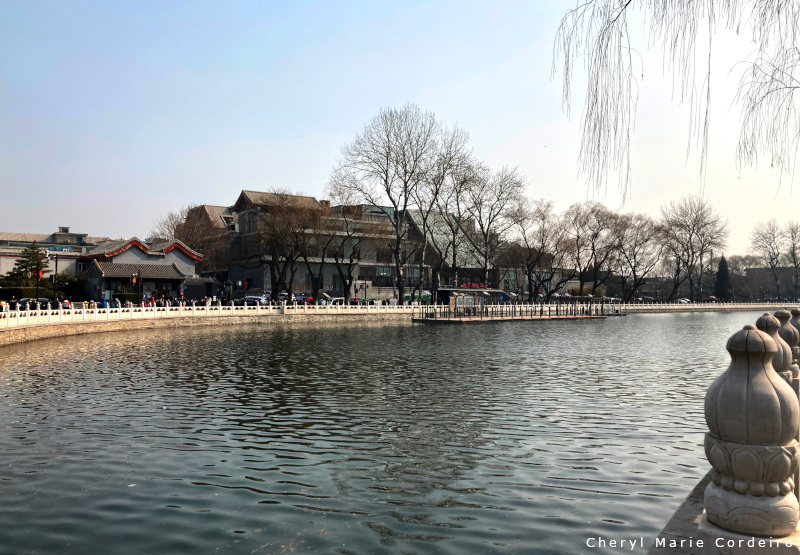
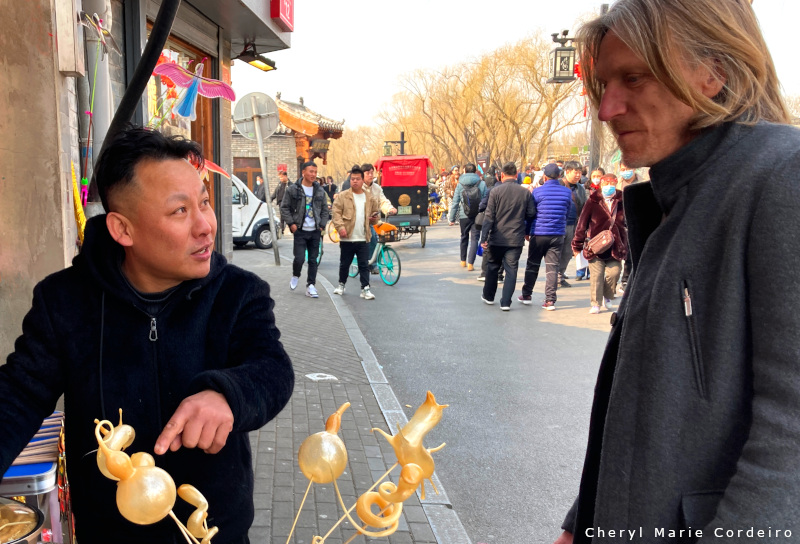
Traditional blown candy, Haidian district, Beijing, China.
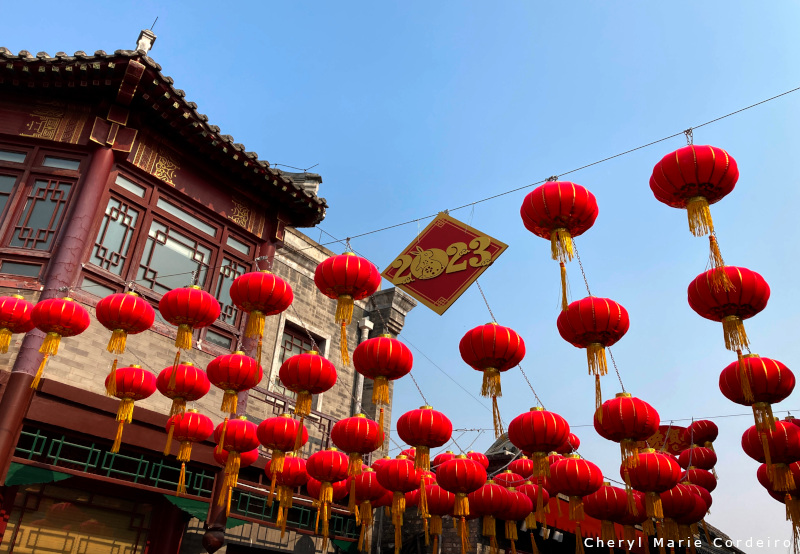
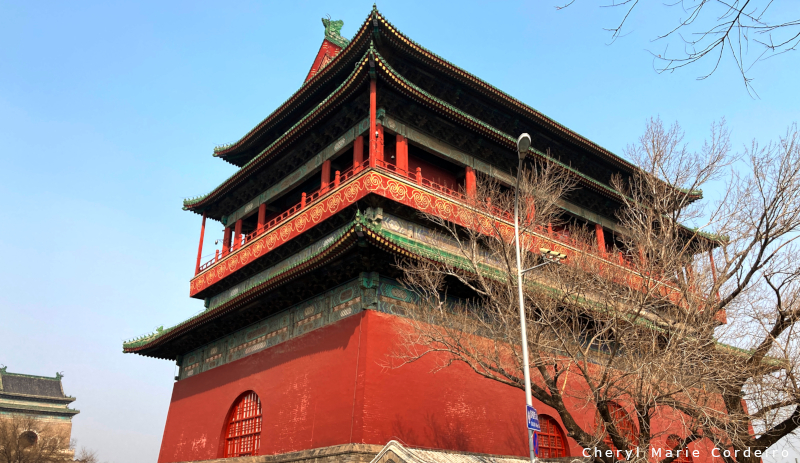
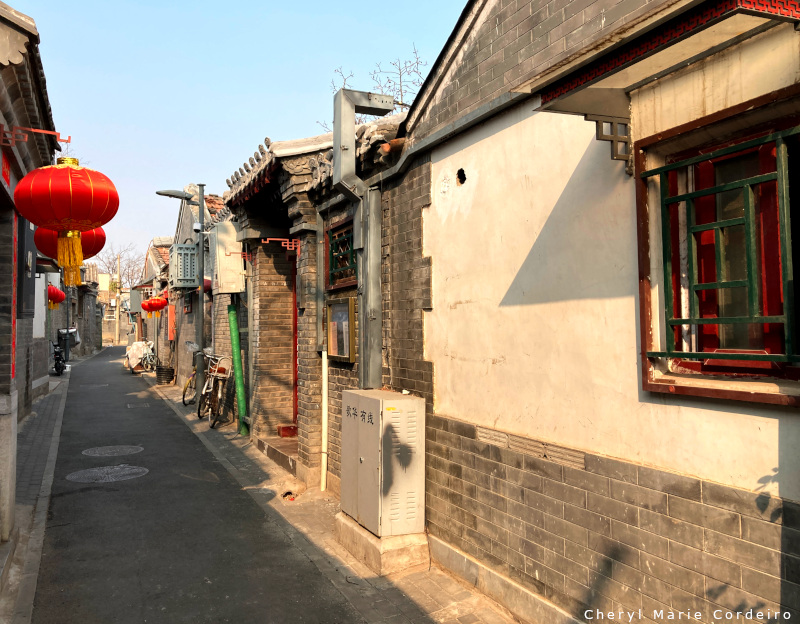
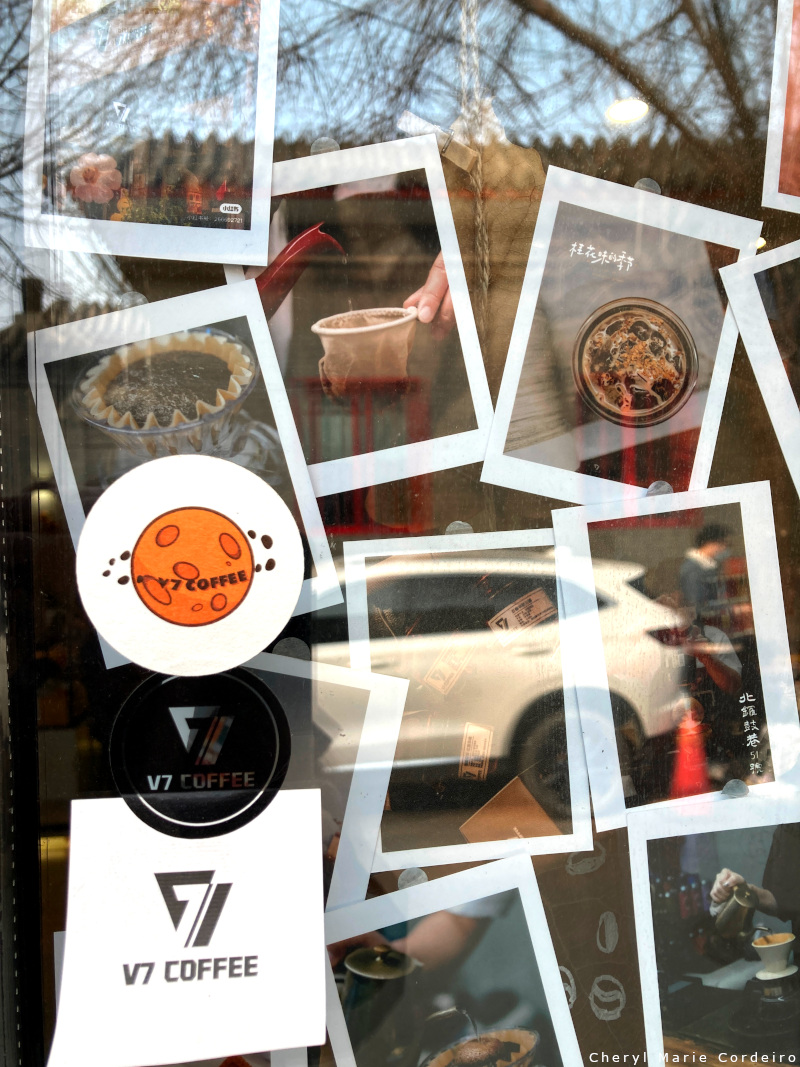
V7 Coffee, serving excellent quality crafted coffee, Haidian district, Beijing, China.
